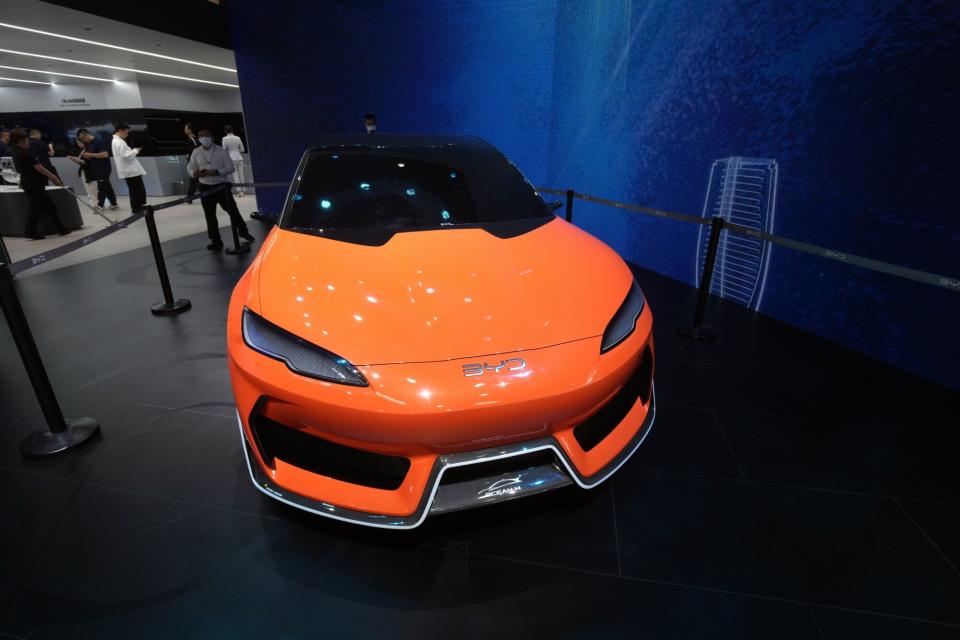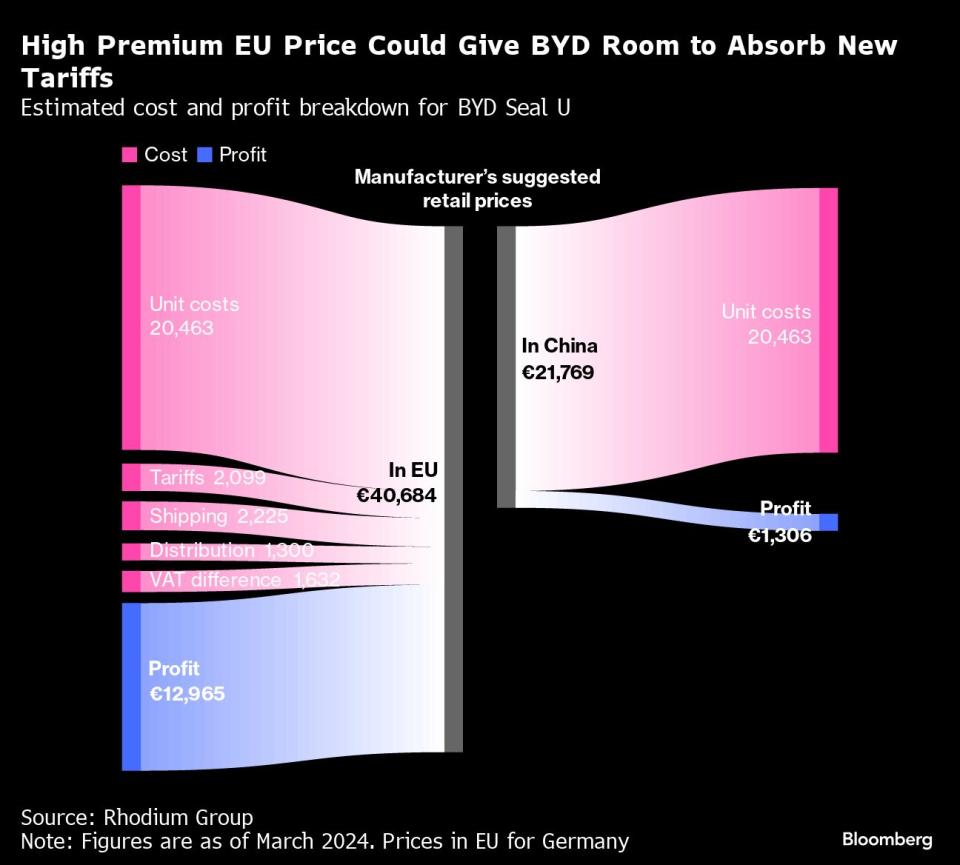China EV Makers Have Room to Absorb EU Tariffs, Find New Markets
(Bloomberg) -- Chinese electric carmakers may be crying foul over the European Union’s imposition of additional tariffs, but they have several options to keep growing, including shifting production to the continent and using fat profit margins to absorb some of the hit.
Most Read from Bloomberg
What to Know About the Deadly Flesh-Eating Bacteria Spreading in Japan
Stocks Struggle to Make Headway on Economic Signs: Markets Wrap
Citi Pitches Money-Moving ‘Crown Jewel’ as Central to Revamp
Flesh-Eating Bacteria That Can Kill in Two Days Spreads in Japan
These Are the World’s Most Expensive Cities for Expats in 2024
Companies could also turn their attention to new markets in the Middle East, Latin America and Southeast Asia, where EVs comprise a small but growing segment of the passenger car market.
The European Commission on Wednesday formally notified automakers including BYD Co., Geely Automobile Holdings Ltd. and MG owner SAIC Motor Corp. of the additional levies on battery electric cars, which will take tariffs to as high as 48% from next month. China’s EV manufacturers have been pushing more aggressively into Europe amid a domestic price war and years of building a lead in the technology.
“As Chinese automakers grow stronger, it’s natural for them to face trade actions like tariff increases,” said Cui Dongshu, secretary general of China’s Passenger Car Association. “Even if there’s suppression of cars exported from China, automakers are not going to be defeated by the added tariff. Instead, it will only make them stronger.”
BYD shares jumped as much as 8.8% in Hong Kong trading Thursday, leading gains among Chinese EV makers on a view the added tariffs are manageable.
EVs made in China, such as BYD’s Dolphin compact crossover and the MG 4, fetch roughly double on average in Europe compared to their home region, customs data show, giving the manufacturers a cushion against the new tariffs.
“BYD will likely be able to absorb most of the burden from EU import duties, since its cars carry peer-beating profitability,” Bloomberg Intelligence analyst Joanna Chen said. The company was also hit with a lower tariff rate of 17.4% versus the industry average of 21% and as high as 38.1% for SAIC, which owns the British brand MG.
Even with the added tariffs, BYD’s profit per car in Europe could still be around one-and-a-half times higher than the same car sold in China, JPMorgan Chase & Co. analyst Nick Lai said in a note.
BYD has also pushed aggressively into other export markets, from Mexico and Brazil — where it’s investing around $550 million to build its first EV hub outside Asia — to Thailand and Australia. It has also picked Hungary for its first European car factory, which would allow it to avoid the new tariffs by producing locally.
Other automakers are also looking to diversify production to outside China. SAIC told its dealers last year that it’s started seeking potential production sites in Europe, and Chery Automobile Co. has signed a deal with Spain’s EV Motors to produce cars in Barcelona. Geely, which acquired Sweden’s Volvo in 2010, potentially has more flexibility to adjust production.
Zhejiang Leapmotor Technologies Ltd. also expects to use Stellantis NV’s global factories in future under a partnership struck last year.
The Middle East has emerged as a new market for China’s EV makers too, including Chery Auto, Xpeng Inc. and Geely’s premium Zeekr brand. Nio Inc. Chief Executive Officer William Li earlier this month said the EU’s tariff push was going in “substantially the wrong direction” and the company will start expanding to the Middle East later this year.
A survey by AlixPartners released earlier this month found 71% of Saudi residents are “very” or “moderately” likely to buy an EV this year, with brand awareness of Chinese manufacturers higher than in Europe, the US and Japan.
Europe’s tariff hikes will have a “minor impact” on Chinese manufacturers because the region accounts for only a fraction of their total sales, according to Daiwa Securities analyst Kevin Lau. Europe contributed between 1% to 3% of overall sales for BYD, Geely and SAIC in the first four months of this year, he estimated.
--With assistance from Yasufumi Saito.
Most Read from Bloomberg Businessweek
Google DeepMind Shifts From Research Lab to AI Product Factory
Coke—and Dozens of Others—Pledged to Quit Russia. They’re Still There
Trump’s Planned Tariffs Would Tax US Households, Economists Warn
©2024 Bloomberg L.P.

 Yahoo Finance
Yahoo Finance 

